Poland is a member of the European Union. It joined the Schengen Area in 2007. Polish institutions of higher education participate in international student exchange programmes and engage in bilateral agreements and individual exchange programmes pursued by particular schools. All these initiatives enhance the development of relations between Polish and foreign institutions of higher education. The number of Polish institutions of higher education awarded an Erasmus University Charter approach 200 and the mobility of Polish students grows rapidly.
Poland’s education market has been the most dynamically developing one in Europe during the last twelve years. The number of higher education institutions has increased five fold while the number of students quadrupled. Each year almost half a million young people begin their education at universities and colleges.
Capital: Warsaw Population: (2022 est.) 38,138,000 Currency Exchange Rate: Polish zloty
Poland offers its students, both national and international, a wide range of subjects to pursue higher studies in, across disciplines. The universities offer a wide range of English-taught courses to international students and the educational sector itself has been expanded tremendously over the last few years.
The country has around five hundred universities or university-level institutions that impart higher education. Of these, there are eighteen universities that are fully accredited by the national government, twenty universities impart technical education and nine offer courses on medicine. Besides these, there are universities that promote higher education in the fields of Economics, Agriculture, Pedagogy, and Theology.
The tuition fees charged by Polish universities are among the lowest in Europe. The country’s public universities do not charge its students any fees for pursuing higher studies. However, international students are required to pay around 2000 euros for pursuing graduation, post-graduation, and professional courses. For pursuing Ph.D., or other specialized and vocational courses, international students are charged 3000 euros. Needless to say, international students have complete access to the country’s public universities. The universities that are affordable, and impart a high standard of education are
Another reason to study in Poland is the fact that it is a country that has a very stable economy. Typically, living costs are in the range of three hundred to six hundred euros a month, depending on the area in which a student decides to live in. Accommodation costs are around forty percent of a student’s budget, and food costs approximately one hundred euros a month. The cost of accommodation in a dormitory ranges is around EUR 60-80 monthly for a shared room and between EUR 100-150 for a single room. Public transport also provides cheap tickets
Poland offers attractive scholarships to its students. There are scholarships that are offered by the Polish government, for those who wish to study abroad in Poland. There is special financial assistance for students from developing countries. In fact, there are a large number of institutions that provide scholarships through government, foundations, and even universities themselves. So, this is another important reason to study in Poland as you can get benefited from these scholarships to pursue your higher studies there.
One of the main reasons international students choose to study in Poland is because the globally famed Polish education system follows the Bologna process. Thus the degrees earned from the universities in Poland are recognized internationally. With innumerable short-term and full-time programs on offer, Polish academic institutions emphasize the essentiality of gaining practical knowledge, creative skills, and exposure over theoretical knowledge.
Hospitality is one of the most important features of Polish culture. The people of Poland are jolly and happy people you can easily mingle with. Polish people are ever ready to ask anyone out to meal or take them for a tour of the city they are in. As the locals are warm and lively people, you can adjust to this new place easily and you will feel right at home there.
In addition, there are part-time jobs available for students. Given all the advantages the country offers its students, Poland definitely is the country to consider, for pursuing top-quality higher education.
| Study Program | Average Tuition Fees in Poland |
|---|---|
| Language and Foundation Courses | 2000 Euro / Year |
| Bachelor and Masters in Poland | 2000 - 4000 Euro / Year |
| Medicine and MBA | 8000 - 12000 Euro / Year |
| Vocational Studies | 3000 Euro / Year |
1) Fill application form.
2) Read carefully ALL the information concerning visa application on the consulate’s website and follow ALL the instructions.
3) Set a visa appointment with the consulate.
4) Prepare the necessary documents, including: application form, travel document (passport), biometric photo, health insurance, sufficient means to support yourself, documents confirming the purpose of your stay. The specifics of the required documentation may vary between consulates, so confirm them with the consulate’s website.
5) Submit all the documents including a printed and signed application form and the visa fee. Visa application is complete. It will take up to 15 days for it to be reviewed.
Poland is a member of the Schengen countries along with others. So you can directly apply for Schengen visa. For Polish National “D” visa, you need to apply in the Embassy of the Republic of Poland in New Delhi. Applicants have to get prior appointment to submit to the Embassy in New Delhi. It is only applicable for Polish National “D” visa; long term visa for a stay over 90 and up to 365 days in Poland. Please note that the national visa allows staying in other Schengen countries for up to 90 days per each 180 days.
Embassy Fee: 7,000 INR
Processing Time: Total approximate processing time is 10 to 15 working days (Time may vary depending on applicant’s profile and embassy actually processing time)
To be able to study in Poland, non-EU/EEA students must demonstrate that they possess sufficient means to cover the costs of living in Poland. Still, some students may wish to combine studies with work. In this case, non-EU/EEA students who stay in Poland with a visa generally need to apply for a work permit, which is granted only if no EU citizen can fill the position. Some forms of work (vocational training, summer student jobs programs) do not require a permit. All full-time students who possess a student visa or a temporary residence permit, EU/EEA citizens and holders of the Card of the Pole do not need a work permit at all.
It may be really hard to leave such a beautiful country after you complete your education here. Don’t worry if you prefer to stay and work in Poland. As a graduate of a Polish higher education institution full-time program, you don’t need a permit to work here. Just make sure your temporary residence permit is in order.
Students from non-EU countries can work here during their course. You can work part-time and finance your stay in Poland by working part-time. However, having a valid residency permit to operate would be advantageous. That is required to study in Poland, so you would be able to work part-time.
Please fill the form, We will reach you

Vincent Pol University in Lublin, Poland
World University Rank: NA
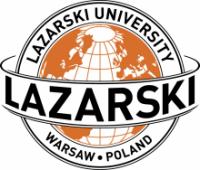
Lazarski University
World University Rank: NA

Lazarski University
World University Rank: NA

Lazarski University
World University Rank: NA

Wyzsza Szkola Bankowa w Toruniu (WSB UNIVERSITY TORUN)
World University Rank: NA
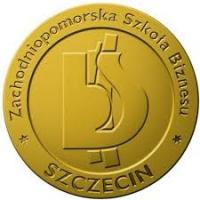
West Pomeranian Business School
World University Rank: NA

Lazarski University
World University Rank: NA
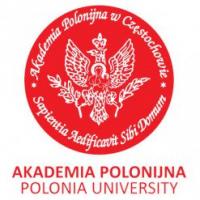
Polonia University in Czestochowa
World University Rank: NA

Polonia University in Czestochowa
World University Rank: NA

Vincent Pol University in Lublin, Poland
World University Rank: NA
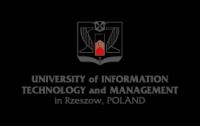
University of Information Technology and Management
World University Rank: NA
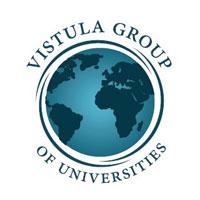
Vistula University
World University Rank: NA

Vistula University
World University Rank: NA

Vistula University
World University Rank: NA

Vistula University
World University Rank: NA
Studying abroad with GSC Global Solutions

House #61 (2nd Floor), Road #03, Sector #13, Uttara, Dhaka.
info@gscglobalsolutions.com
+88 01993333602, +88 01322839602
Jalab Plaza (1st Floor), Main GT Road (Near Molana Zafar Ali Khan Chowk), Wazirabad, Pakistan.
pak@gscglobalsolutions.com
+923354202733
8th Floor, Forum Central (Lift #08), Golpahar Circle (Above of Shwapno Super Shop), M. M. Ali Road, Chattogram.
apply@gscglobalsolutions.com
+8801322839601/ 01322839604
1.09 (1st Floor), Plaza Berjaya, No 12,Jalan IMBI, 55100 - Kuala Lumpur. | Phone - 0133233593
manager@gscglobalsolutions.com
+60133233593
67 MARYLAND SQUIRE,LONDON E151HF UNITED KINGDOM
info@gscglobalsolutions.com
+447466653665
JR Tower (4th Floor), Jail Road Point (Above Bkash Office), Sylhet.
gscsylhet@outlook.com
+8801993333609, +8801322839613
Suit #M-11, Gulfesha Plaza (11th Floor) 69, Outer Circular Road, Shahid Salina Parveen Sarkar Moghbazar, Dhaka-1217.
director@gscglobalsolutions.com
09617000555/09617171711 +8801993333602/+8801993333606
GSC GLOBAL SOLUTIONS Office 103-24, Emitac Building (1st Floor), Opposite Al Kazim Building, Near GGICO Metro, Al Garhoud, Dubai, UAE.
uae@gscglobalsolutions.com
+971506186104, +971563225214